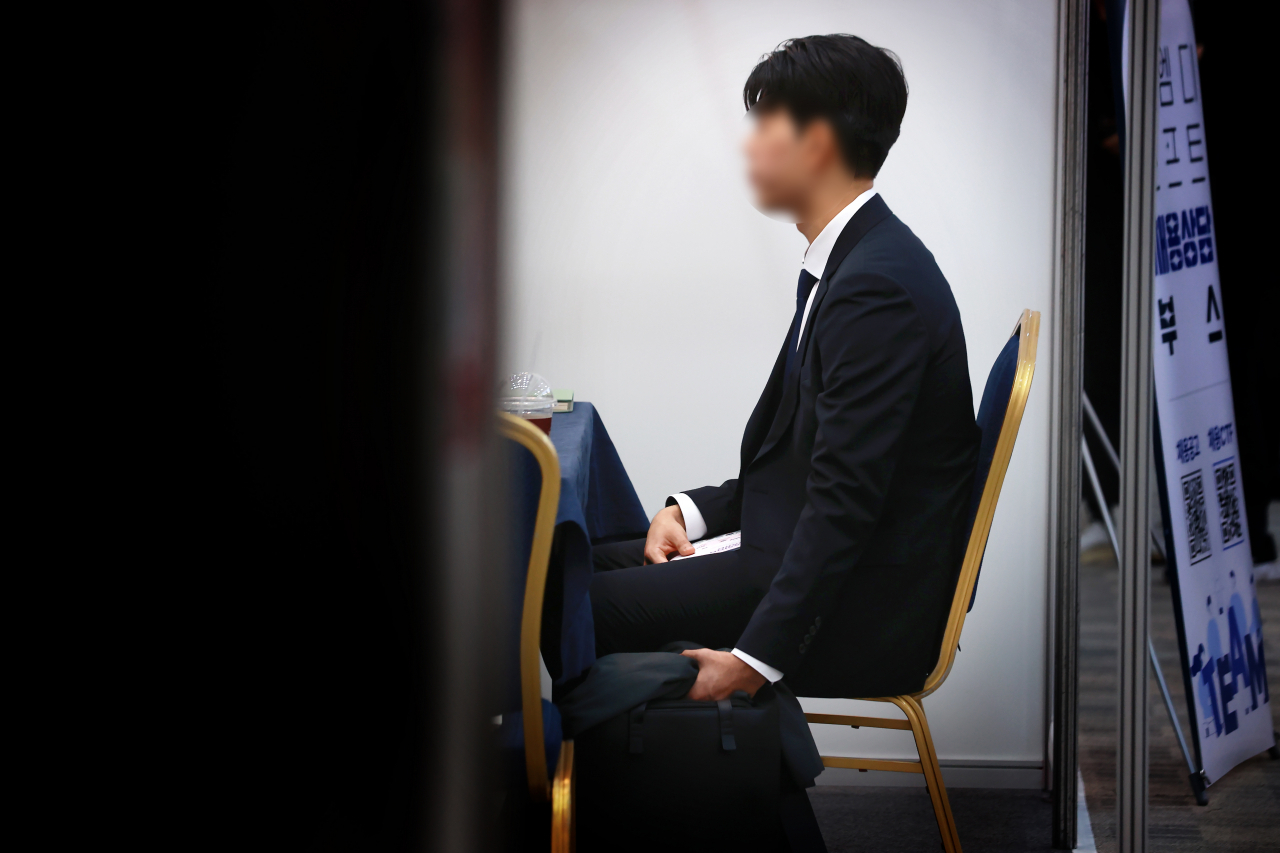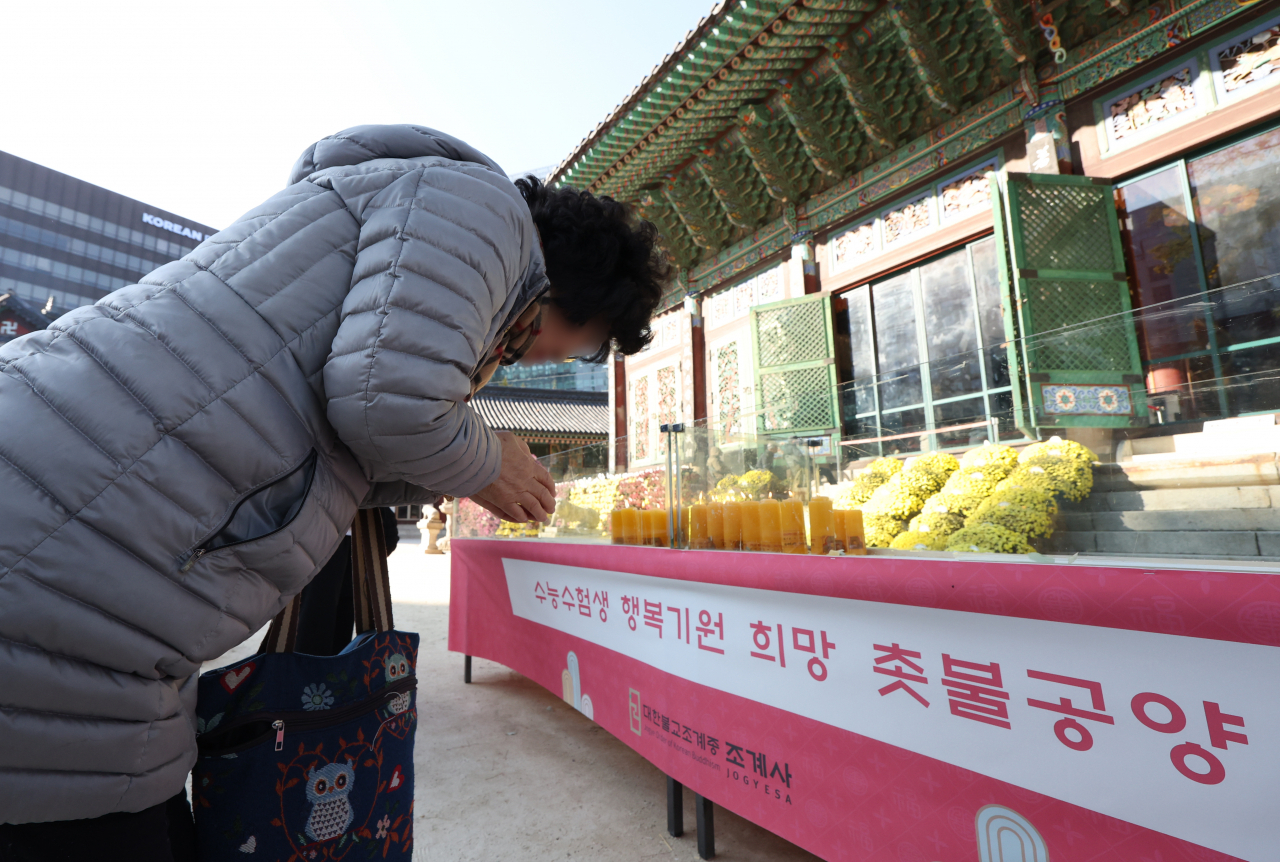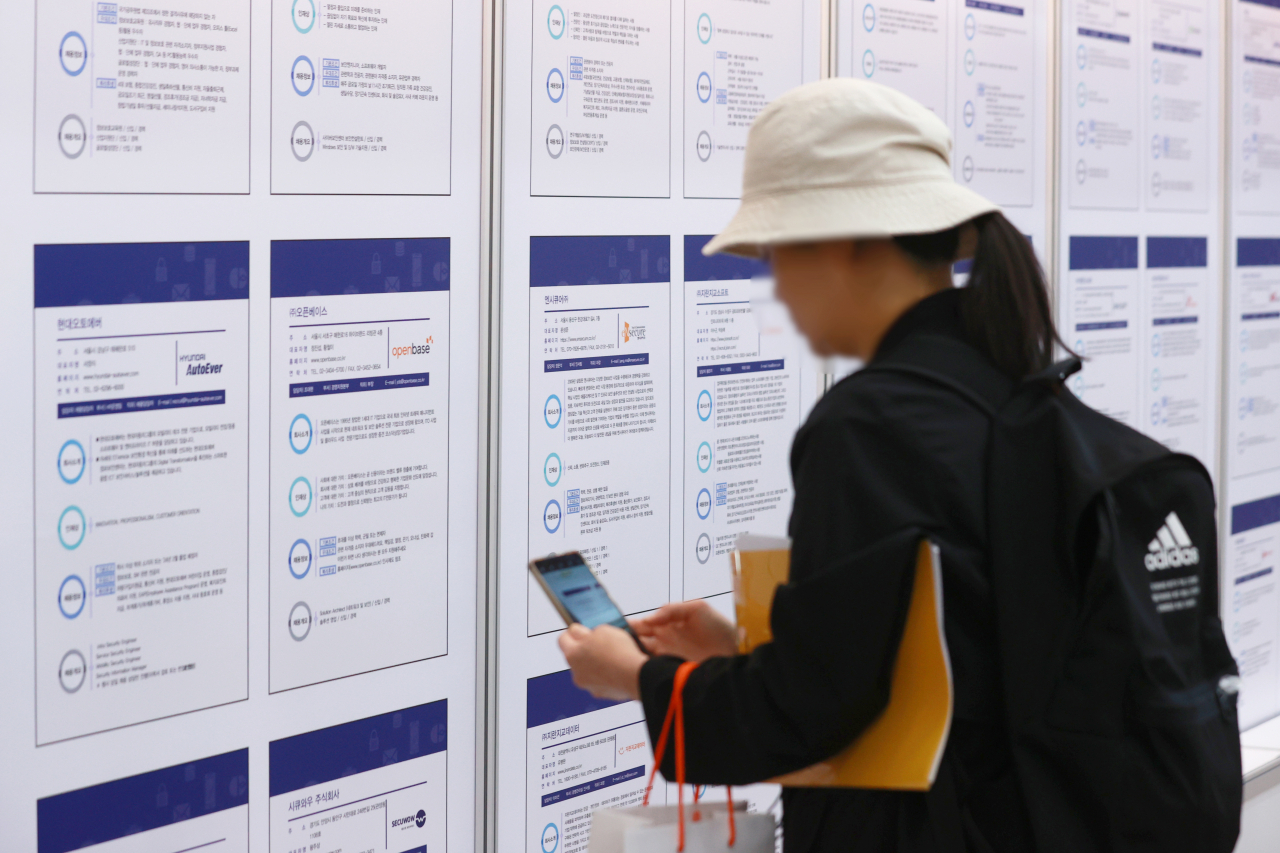Tales of hard work, dashed dreams and disillusionment
Growth of young Koreans neither in education, employment, or training has profound economic and social implications, experts say
By Shin Ji-hyePublished : Dec. 10, 2023 - 14:53

In her teens and early 20s, Park Jung-mi (not her real name) viewed herself as an achiever, even if she wasn't one of the highest fliers.
In high school, she studied until late into the night on a near-daily basis, aiming for admission to a prestigious university. After successfully getting into one of the top 10 universities here, she maintained her commitment to hard work and self-discipline, graduating with an average GPA above 4 out of 4.5.
But from then on, life has been disappointing.
Park is now 31 years old, with an unremarkable resume including a two-year contract gig at a government agency that failed to lead to a permanent position and another two years at a small trading firm on low pay. For the past seven months, she has stopped looking for work.
“I just don’t feel like job hunting now,” said Park. “I don’t want to go back to a stressful life.”
Like many of her college peers, she initially wanted to secure a stable job at a big company. She never thought it would be so far out of reach.
“It hurts to think about my parents and the disappointment that I’ve come to,” she said.
Park's frustration echoes the sentiments of many other young South Koreans who are in a state of limbo categorized as NEET -- short for neither in education, employment or training.

Korean NEETs, lost in statistics
The Organization for Economic Cooperation and Development regularly publishes comparative data on the share of the NEETs among youth by country, to shed light on the challenges faced by many economies in helping the young generation’s transition from school to work.
But South Korea is not represented in the OECD data, due mainly to differences in methodology in data collection and classification.
Instead, discussions about Korea's lost generation often rely on a different set of local data on “inactive youth,” or those who are described locally as being “on a break” from education or work, without clear reasons, like illness, to do so.
This group is not captured in the country’s youth unemployment data, as joblessness is defined as a status of economically active individuals who fail to find work, despite their intention and efforts to do so.
As of October this year, 4.9 percent of South Korea's population aged 15-29, approximately 410,000 people, belonged to this group of voluntary quitters, Labor Ministry data shows.
The inactive youth population has seen a steady increase, rising from 284,000 in 2005, 274,000 in 2010, 307,000 in 2015, and to 390,000 in 2022. In terms of percentages, this represents a growth from 2.7 percent in 2005 to 4.5 percent in 2022.
Local experts say beneath these figures lies a narrative of dashed dreams, unmet expectations and a pervasive disillusionment with reality.
“A notable distinction for South Korea compared to other countries is that whereas NEETs in other nations are typically individuals with lower educational attainment and social status, in South Korea many of them have higher educational backgrounds,” said Park Ka-yeul, a research fellow at Korea Employment Information Service, a public agency affiliated with the Labor Ministry.
While highlighting the share of tertiary educated youth among NEETs, Park stressed the problem of “education inflation” in the country. As of 2022, 73.3 percent of high school graduates in South Korea enrolled in college.
“There is educational inflation compared to the skills required in workplaces,” Park said.
Rather than settling for jobs at small firms, many young people choose to continue looking until they find positions that meet their expectations. This, according to Park, often results in prolonged state of joblessness and NEET status, a trend that becomes more pronounced when their parents have a higher level of education.

Paradox of education
In many other countries, the NEET issue usually involves low-skilled youth who have left school prematurely, facing challenges in adapting to an economy that is shedding jobs for them due to technological advancements and the impact of global trade.
But South Korea is a different story.
The country boasts one of the highest college entrance rates among OECD countries, with 73.3 percent of high school graduates enrolling in college in 2022.
While public education is free from elementary to high school, South Koreans spend a substantial amount of money -- approximately 26 trillion won ($19.8 billion) last year, which is equivalent to 1.2 percent of Korea’s gross domestic product -- on private education, according to Statistics Korea. Private education typically starts well before schooling begins at age 7 and peaks at the high school period, especially in preparation for college admissions.

The time and money invested in education, however, can sometimes lead young adults to develop expectations that may not be met. While everyone desires compensation for their efforts, but the likelihood of obtaining such rewards is diminishing due to a shortage of "decent" jobs in the market.
So what is a “decent” job?
According to a May survey by the Korea Chamber of Commerce & Industry, 64.3 percent of young people prefer large companies; 44 percent opt for public official roles; 36 percent choose mid-size firms; and only 15.7 percent favor small companies.
Compensation and welfare was the primary factor. The wage share of small enterprises compared to large corporations remained at 47.2 percent as of 2021, according to the Ministry of Economy and Finance.
In 2020, the Korea CXO Institute, a corporate tracker, found that the nation's 64 largest companies, accounting for 84 percent of the nation’s gross domestic product, employed only 11 percent of the total workforce.
Their hiring plans are not expected to increase in the future due to slow economic growth. By contrast, while small and medium-sized enterprises employ 80.9 percent of the total workforce, they face a chronic labor shortage.
The difficulty in employment mobility also plays a significant role in young people’s hesitation to start their careers with small firms.
In the Korean job market, transitioning from small firms to large ones or from non-regular to regular employment is extremely challenging. In 2021, less than 3 percent of employees from small companies successfully transitioned to positions at large companies, according to Statistics Korea.
"In Korea, many large and small companies are tied in subcontracting relationships. Their structure is not horizontal, but vertical and hierarchical," said Kim Sung-hee, a professor at Korea University's Graduate School of Labor Studies.
"This structure also renders the labor market rigid, typically obstructing employee mobility from small companies to large companies,” he said.
Adding to the complexity, there is another layer unique to Korean jobs – the distinction between regular and non-regular jobs. The term “non-regular” encompasses temporary, contract and dispatched workers who often have lower pay, fewer welfare benefits and less job security.
Experts see flaws in the long-standing societal mantra that preaches the country's youth to "study hard, get into a good university, and secure a good job, leading to a good life."
“Parents, who experienced a time when a good university education guaranteed a decent job, continue to educate their children in the same way, despite significant changes in the job market,” said Kim Hye-won, chair of the local civic group Pie for Youth.
“Although 70 percent of Koreans attend college, many are not genuinely interested in academic pursuits. However, they struggle to envision other paths (beyond the traditional route their parents took,)” she said.
Highlighting the contrast with countries in northern Europe and Germany, she noted that teenagers in these regions have more opportunities outside of public education to envision their life after graduation.
“They can gain social experience, participate in internships or vocational training, or simply explore their true identities. All these pathways are recognized and valued in society and not treated as something peculiar or erratic."
Park from the Korea Employment Information Service suggests that the country's education system needs to shift away from its emphasis on college admissions. Instead, it should lean toward fostering a more progressive mindset, encouraging youth to take on challenges and carve out their own careers.
“Education should move away from solely preparing students to enter top universities and companies through rote memorization for tests,” he said.
“Instead, it should foster entrepreneurship and encourage students to think creatively and innovatively. This new focus would help equip young people with the skills and mindset necessary to navigate and succeed in today's dynamic and ever-changing world."
Way out
Park continued that high NEET numbers, if left unaddressed, can lead to significant social costs.
"When young people experience prolonged job-seeking periods, their will diminishes and their self-esteem declines. Ultimately, they give up on entering the labor market,” he said.
"A prolonged (NEET) status can weaken the nation's purchasing power and social vitality. Moreover, as these individuals reach their 40s, they often become financially dependent on their elderly parents, relying on their pensions."
The NEET status typically hinders a person from progressing to the next phases in life, like getting married and having children.
The economic impact of the NEET population was estimated at 61.7 trillion won here, which represents 3.2 percent of the nation's total gross domestic product, based on a report from the Korea Economic Research Institute.

Recognizing the severity of the issue, the government recently allocated approximately 1 trillion won to boost youth participation in labor market. This funding is directed toward supporting initiatives such as internship programs in both private and public sectors, as well as job consulting services.
The fierce competition for increasingly scarce stable, well-paying jobs is forcing young people to “change their perception” toward work, according to Jeon Seong-shin, co-CEO of the civic group Neetpeople, which supports NEET individuals mentally and socially.
“Until 2020, many young people tended to prepare for careers at large companies and public organizations, viewing these as ‘stable' options. However, we have noticed a recent shift in their interests toward personal work, freelancing and ‘N-jobbers,’” she said.
“N-jobbers” is a local term that refers to those who have multiple jobs. Even when hired, they are increasingly inclined to work on “personal projects” or focus on “personal branding.”
Jeon sees this as they attempt to find a breakthrough, since relying solely on securing employment at stable companies has become challenging. However, their efforts are often overlooked in government statistics.
“Looking at the government data and media coverage, these young people are sometimes depicted as giving up everything and idling away their youth in their rooms, (relying on parents’ financial support),” Jeon noted.
However, viewing people in such a one-dimensional manner doesn’t help, she stressed. Many young people grapple with depression, lethargy and feelings of guilt for not meeting their parents' expectations.
"As a society, we need a concerted effort to provide social safety nets for them, with a greater acceptance of diversity."



















![[Today’s K-pop] Treasure to publish magazine for debut anniversary](http://res.heraldm.com/phpwas/restmb_idxmake.php?idx=642&simg=/content/image/2024/07/26/20240726050551_0.jpg&u=)